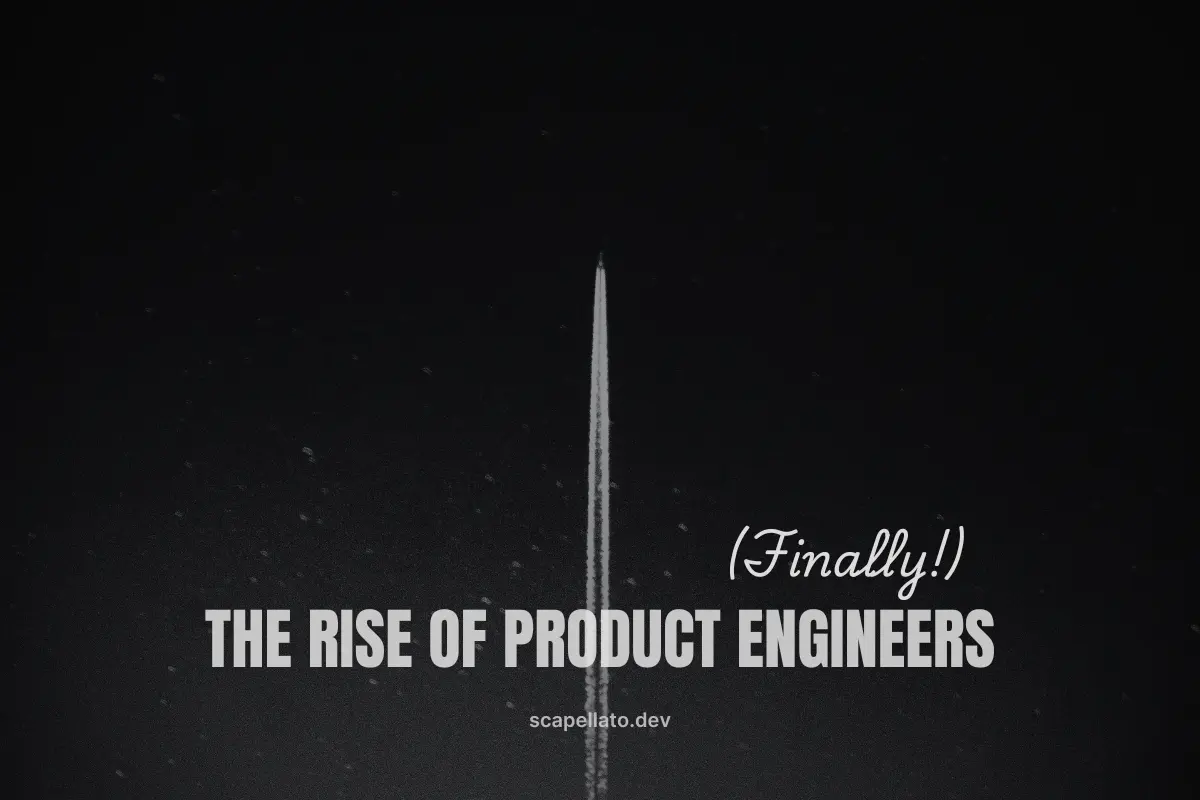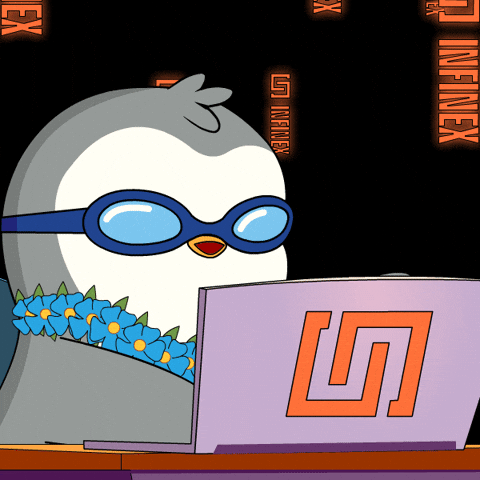The Rise of Product Engineers... Finally!
Why the Product Engineer is the Future of Startup Innovation
Antonio Scapellato
March 11, 2025 • 8 min read

The Rise of Product Engineers: The Future is Here
For years, startups have struggled with the divide between engineering and product teams. Enter the Product Engineer, a hybrid role that seamlessly blends technical expertise with product intuition. No longer just code-focused or limited to feature implementation, Product Engineers take ownership of the entire product lifecycle—from ideation to launch and beyond.
What is a Product Engineer?
Unlike traditional software engineers or product managers, Product Engineers are deeply involved in both product strategy and execution. They don't just build features; they shape the product, collaborating closely with designers, marketers, and customers to ensure technical decisions align with business goals.
Key Traits of a Product Engineer:
- Business-Minded – Understands company goals and how technology drives success.
- User-Centric – Engages with users, gathers feedback, and iterates based on real needs.
- Full-Stack Capable – Comfortable working across front-end, back-end, and sometimes DevOps.
- Collaborative – Bridges the gap between engineering, design, and product teams.
- Data-Driven – Uses analytics to guide product improvements and measure success.
Why Now? The Perfect Storm
The rise of Product Engineers isn't accidental—it's the result of major shifts in startup dynamics and technology:
- Lean, Agile Teams – Startups need versatile team members who can wear multiple hats.
- Faster Product Cycles – Iteration speed is critical, requiring engineers who can think like PMs.
- User-Driven Innovation – Products succeed by solving real problems, and engineers must be directly involved in that process.
- AI & Automation – The rise of AI-driven product development frees engineers from routine tasks, allowing them to focus on strategic impact.

Product Engineer vs. Full-Stack Developer: What's the Difference?
While the two roles share technical skills, Product Engineers think beyond code. Here's how they compare:
- Full-Stack Developer: Works closely with other engineers, Technical depth
- Product Engineer: Building the right product, not just writing code,Business and product impact
Real-World Startups Leveraging AI with Small Product Engineer Teams
Neurofit: AI-Driven Mental Wellness
- Personalized Mental Health Coaching – AI analyzes user data to provide tailored guidance.
- Efficient App Development – AI streamlines coding and debugging, accelerating product iterations.
- Global Accessibility – AI translates content into 40+ languages for broader reach.
Amarra: AI-Powered E-Commerce
- Automated Product Descriptions – Reduces content creation time by 60%.
- Inventory Optimization – AI-driven forecasts cut overstocking by 40%.
- AI Customer Service – Chatbots handle 70% of inquiries, improving response time.
Swap: AI for E-Commerce Logistics
- Automated Supply Chain Management – AI integrates shipping, tracking, and returns into a single platform.
- AI-Powered Inventory Forecasting – Reduces stock mismanagement and enhances efficiency.
Devin AI: AI Software Engineer
- Autonomous Coding – Writes, debugs, and plans development tasks.
- Rapid Deployment – Builds functional web applications in minutes.
Buffalo Automation: AI for Autonomous Maritime Navigation
- AI-Driven Navigation – Analyzes real-time data for automated ship movement.
- Predictive Safety Measures – Uses AI to detect obstacles and comply with maritime regulations.
How to Hire (and Retain) Product Engineers
For Founders & Hiring Managers:
- Look for Engineers with Product Mindsets – Coding ability is essential, but so is critical thinking and customer empathy.
- Foster a Culture of Ownership – Give Product Engineers autonomy over their work.
- Encourage Cross-Disciplinary Learning – Offer opportunities to learn product management, UX design, and analytics.
For Engineers Looking to Become Product Engineers:
- Expand Beyond Code – Learn about product strategy, user experience, and business models.
- Engage with Users – Talk to customers, understand their pain points, and build solutions with them in mind.
- Master Rapid Experimentation – Use A/B testing, MVP launches, and analytics to drive development.
The Future: Product Engineers Leading the Next Wave of Startups
The best startups are built by those who deeply understand both technology and product. As engineering shifts from feature factories to product ownership, Product Engineers will lead the next wave of innovation.